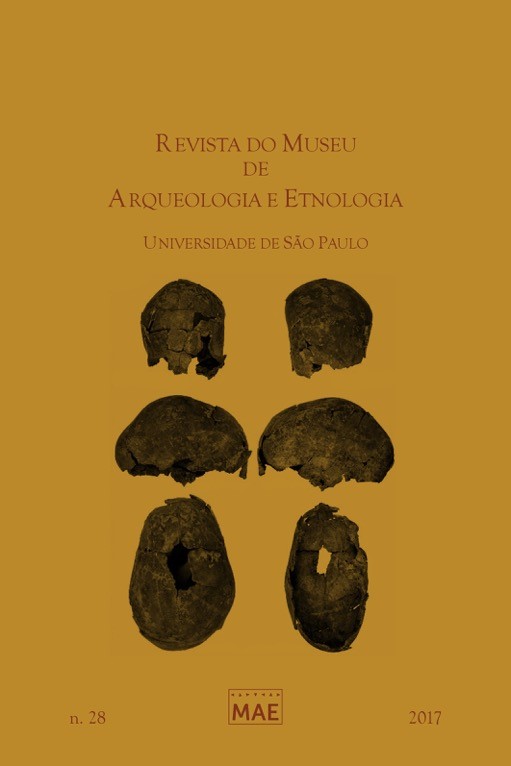Arqueologia rural galo-romana e ideologia moderna
DOI:
https://doi.org/10.11606/issn.2448-1750.revmae.2017.125984Palavras-chave:
Gália romana, Campesinato, Arqueologia rural, Mercados locais, Regionalização.Resumo
O objetivo deste trabalho é avaliar recentes representações historiográficas das regiões rurais da Gália tardo-romana. Com o aumento e a expansão do escopo da arqueologia rural nesse período, em substituição a uma visão de um Império em decadência, passou-se progressivamente a visões que propõem crescimento econômico e comercial nas regiões rurais do Império. Observando o caso específico do norte da Gália tardo-romana, a avaliação dessas representações busca refletir a respeito dos métodos de investigação nos quais se baseiam a arqueologia rural, principalmente o papel da survey archaeology na produção de sítios sub-villa e das interpretações dos achados nesses sítios em termos da criação de mercados locais. Uma vez que essa perspectiva de crescimento econômico se dá no contexto também da reelaboração da perspectiva modernista no estudo da Economia Antiga por meio da aplicação da New Institutional Economics como enquadramento teórico, critica-se os parâmetros modernizantes de interpretação do quadro representado pela documentação material e problematiza-se o uso da ideia de desenvolvimento econômico inspirado em referências de desenvolvimento capitalista. Em contrapartida, busca-se propor formas de lidar com esse quadro documental de forma a elaborar modelos de processos sociais e econômicos mais complexos e dinâmicos do que a historiografia do século XX reconhecia para as regiões rurais da Gália tardo-romana.
Downloads
Referências
Downloads
Publicado
Edição
Seção
Licença
Direitos autorais (c) 2017 Uiran Gebara da Silva

Este trabalho está licenciado sob uma licença Creative Commons Attribution-NonCommercial-NoDerivatives 4.0 International License.


















